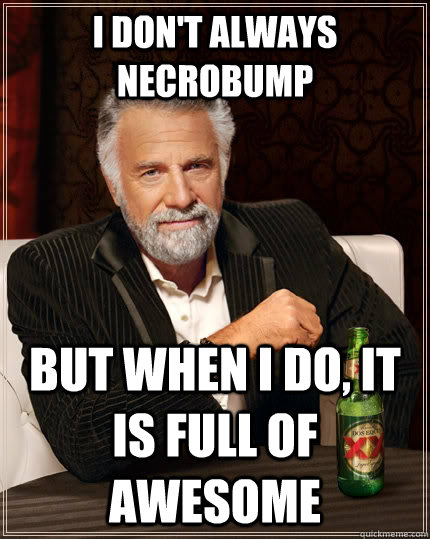kool bubba ice
Headphoneus Supremus
- Joined
- Jun 16, 2006
- Posts
- 8,547
- Likes
- 87
Quote:
Well he never got it. All the dog knows is that you are hitting it.. Does the dog know what he did wrong?? Ofcourse not.. Much like spanking a 2 yr old for knocking over a cake.. My mothers Ex abused her dog.. The dog was more obiendant out of FEAR.. But would also run in the backyard when he yelled.. I stopped him a few times physically from beating the crap ouf of my moms dog, cause it's BS.. Dudes in a bad mood.. Leaves pie on the edge of the counter..Dogs gets the pie.. oop. Time for a beating.. No!!
Hitting is the easy way to stop the situation in regards to babies/kids/dogs..
| Originally Posted by laxx /img/forum/go_quote.gif It all depends on the hitting. My girlfriend has a Yorkshire Terrier and I do hit it (she doesn't have the heart to do it.). By no means do I hit it hard, I just roll up a newspaper or magazine and hit it's foot (not too hard, but at the same time, more than just a tap). Hit hard enough so that he know's it wasn't for fun, but not too hard to cripple him (her yorkie was 4 lbs when I did it). After a few times, everytime you roll up a newspaper and point it at him, he'll know he was doign something wrong and will stop. So those few days where I did hit him made me vote yes. I disciplined him, but it only took like, 5 hits for him to "get it". |
Well he never got it. All the dog knows is that you are hitting it.. Does the dog know what he did wrong?? Ofcourse not.. Much like spanking a 2 yr old for knocking over a cake.. My mothers Ex abused her dog.. The dog was more obiendant out of FEAR.. But would also run in the backyard when he yelled.. I stopped him a few times physically from beating the crap ouf of my moms dog, cause it's BS.. Dudes in a bad mood.. Leaves pie on the edge of the counter..Dogs gets the pie.. oop. Time for a beating.. No!!
Hitting is the easy way to stop the situation in regards to babies/kids/dogs..










